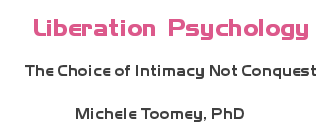|
Ironically, brain damage demands that you be extremely attentive if you want to function at a sophisticated level. Yet, if you work too hard at being attentive you become obsessed with trying and thinking, and it works against you. Your mind never rests, you become totally self-absorbed, your brain is wound too tightly and your memory is even more unavailable. Yikes! All because you try too hard? Well, yes and no. There are many, many factors involved, but, if we separate out this one factor, we discover it's very loud and very complicated.
If you don't do your psychological work and attend to what's happening, you will get lost in the quagmire of the brain damage. It is a relentless force, and like the tides, the electrical energy in your system is perpetually in motion. Without attention it will take over and do its thing, misfiring, scooting around, reacting to stress, creating stress, reacting to fatigue, causing fatigue, wanting sleep, refusing to sleep, disorganized, chaotic, urgent, out of it yet caught in it...the list is endless. What was once a natural rhythm is now interrupted with misfirings. What once was automatic and efficient, is now difficult and clumsy. Memory loss is a moving blanket that covers up the past in random slips and slides.
Nothing is as reliable as it was. Nothing.
Nothing is as natural as it was. Nothing
Nothing is as easy as it was. Nothing.
So, we ponder the dilemma of trying too hard. Of course, it's a dilemma. Who's to know what is too hard, not hard enough or just plain hard? It's all hard. Relentlessly hard. Life is hard for everyone, but yours has a cruel sharp edge. Yes, you are self-absorbed. Yes, you obsess. Yes, you are moody. Yes, you try too hard.
And what do we respond to all that? We're really sorry, we're really proud, and we really think you're doing phenomenally well, given the dilemma. What should you do differently? As if there were a real answer to that. I think we have to just keep on keeping on, and by trial and error, discover what we can about the collaborative effort of working with a damaged brain. It is still in the lead. We must follow and creatively respond. Without the fear of seizures, we no longer need to fear its leadership. If we attend, caringly and trustingly, we will discover what your injured brain can and cannot do, what it can and cannot recover, what will and will not regenerate.
We don't have to worry so much if we follow its lead. So, trying too hard needs to be replaced with creatively attending. We can never be too creative! There's no boundary there. Aha! That's it. Transform trying so hard to creatively attending. That should be a wonderful shift and bring a sigh of relief.
The orientation of creatively attending will bring welcome relief. Sigh. Whew. Yes.
|



